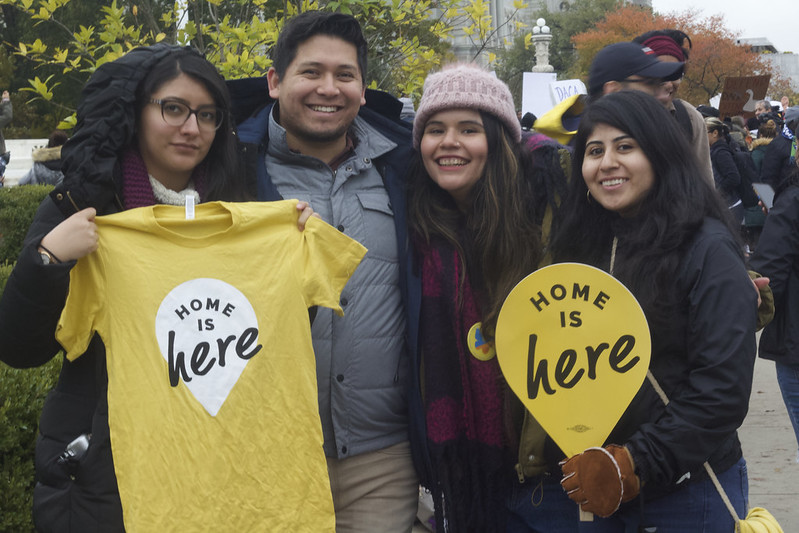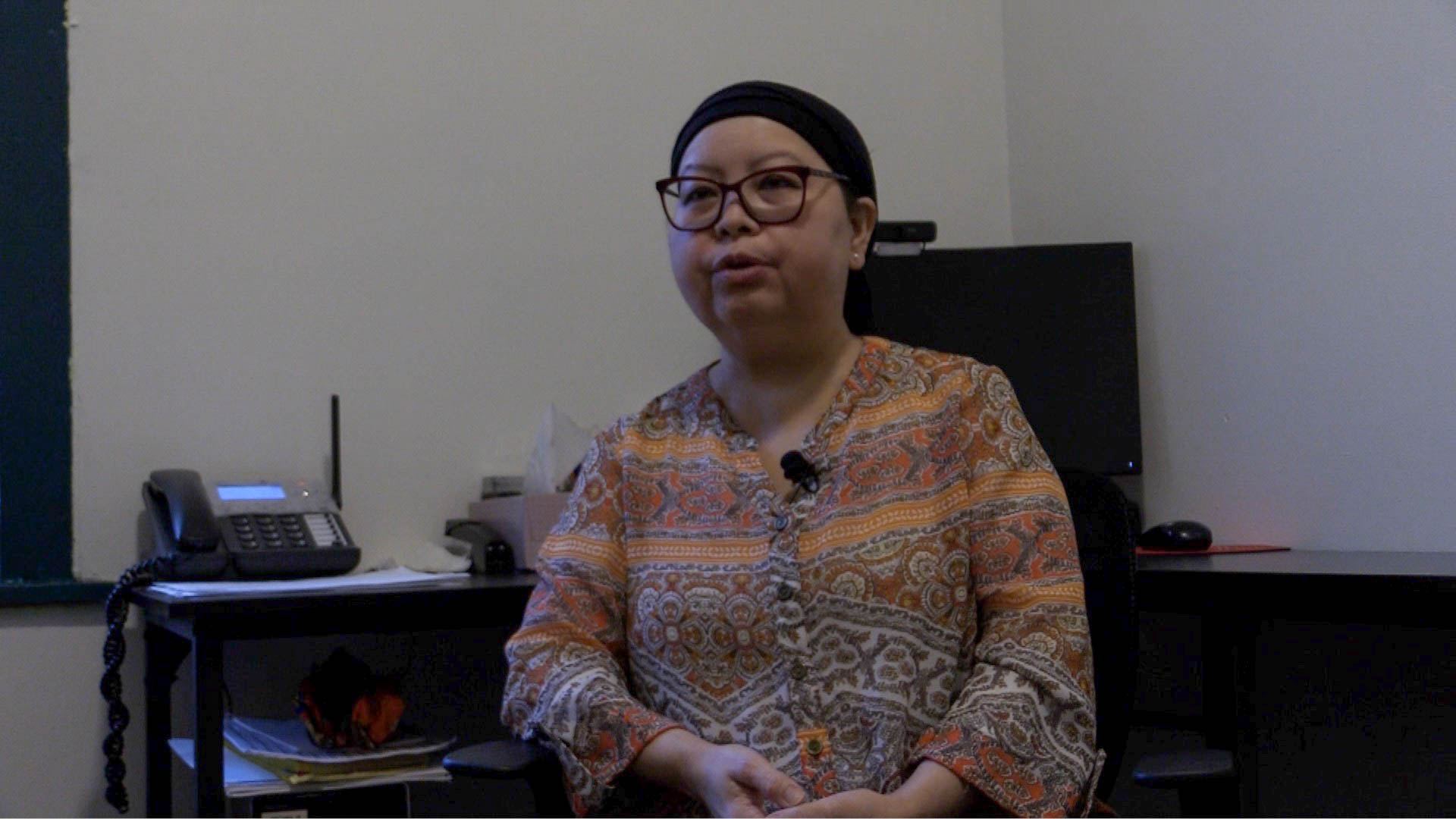The Supreme Court held a hearing on DACA yesterday to decide the fate of 700,000 people who bought to this country undocumented as children.
As a crowd of protestors waited in front of the steps of The Supreme Court in D.C. yesterday morning, chilly air descended upon them as rain started to fall. People anxiously waited, holding signs that said “Let Our Dreamers Dream” and “Home is Here”, as they anticipated a decision that will change the lives of DACA recipients throughout the United States.
At 10 AM, nine Supreme Court Justices entered the room to begin the case which ignited the defense for Deferred Action for Childhood Arrivals, a program that has let young immigrants who were brought to this country before they were 16, apply for jobs, attend university and live without fear of deportation.
The Department of Homeland Security v. Regents of The University of California began a marathon of arguments for an almost two hour meeting in the Supreme Court to discuss the legality of ending DACA. Tension was high in the courtroom, as the conservative justices leaned towards Trump’s decision to end the program as lawful, and said that eliminating the program could be a reasonable move.
“The whole thing was about work authorization and these other benefits,” Chief Justice Roberts said. “Both administrations have said they are not going to deport people.”
While the more liberal justices argued that ending the program would create a severe disruption to 700,000 DACA recipients and hurt our country’s resources.
Noel Francisco, the Solicitor General of the administration, said that the benefits for immigrants was one of the main problems of the DACA program and constituted illegality.
“So the DACA program would be legal if they were not receiving benefits? You think they would not need to be legally deported?” Ruth Bader Ginsburg posed this question, as Francisco tried to defend the reasons behind ending DACA and the benefits that come along with it.
Theodore Olson, who defended the rights of the DACA recipients and questioned the government’s right to end DACA, said there is nothing in place to support the ending of the DACA program. He said that the reasons given by The Department of Homeland Security aren’t enough to to end their futures in the U.S.
“It affected 700,000 people and Homeland Security did not have the constitutional reasoning to argue against it,” he said. “The reasons to end DACA didn’t create enough defense to destroy the lives of so many people.”
While Olson passionately defended the University of California case and the people affected by it, Francisco continued to argue against DACA and said that it was illegal to even begin the program in the first place.
As Francisco decried the legality of DACA, the liberal justices continued to question him. Justice Sotomayor, who seemed to lean towards the continuation of the program, commented on the Dreamers’ employment in the workforce, their dedication to school, and their contributions, like taxes to the country’s economy.
“For those people, like DACA people, who are legally employed, pay taxes, why would we remove these people?” she asked. “The current president told DACA people that they would be safe here, and he would keep them here, but he hasn’t.”
Jacqueline Fernandez, a DACA recipient who immigrated from Mexico to Los Angeles, California at the age of four, was angry about the court case. She said that she couldn’t believe that nine Justices were discussing the deportation of people in terms of “legal or not legal”. She said that the case was completely inhumane.
“It bothers me that they focus so much on the constitutionality of things, cause they have the power to change laws,” Fernandez said.
She said that it is frustrating to have strangers decide the fate of her life and the lives of immigrants under DACA.
“I feel like people inside that court forget about what is out here,” she said. “People who were sitting in the court, I didn’t even know them. I didn’t see them waiting out here, it would have been great to have more people who are directly affected by DACA in there.”

Jacqueline Fernandez, 25, stands with other DACA youth outside of The Supreme Court hearing. Photo by Sydney Fishman
The arguments yesterday morning are actually the beginning of a long journey to reach a final decision. Currently, DACA recipients are able to renew their applications, but the US Citizenship and Immigration Services is not taking new applications. The DACA immigrants will still be in limbo, at least until the Supreme Court reaches a decision by June of 2020.
Fernandez said that even with the DACA program, she has been in limbo since she was a child. She hasn’t been able to plan out her future for more than five years at a time, and this court case further stalls her status as a “legal or not legal” human in America.
“I feel like growing up as undocumented, with DACA, I still feel like I have always been in legal limbo,” Fernandez said. ” I can’t really plan five years out. And like, where I need to be.”
She said that there is always fear of deportation. It’s directly impacting her community, and they have had to constantly fight for their rights.
“If it is deemed legal and they end DACA, I have honestly thought about self deportation,” Fernandez said. “That is not ideal, my family is here. Obviously it’s not a way to live, to just uproot yourself like that.”

